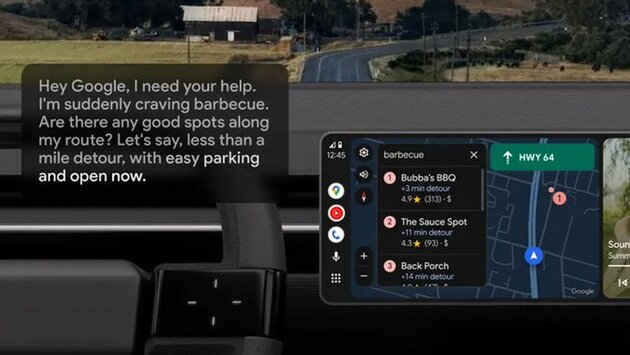

Google has confirmed that Google Assistant will be phased out in Android Auto, making way for its AI-powered Gemini. According to a support page spotted by 9to5Google, the transition could begin as early as March 2026. This move aims to deliver more natural voice interactions, reducing the need for drivers to touch their smartphones while on the road. For anyone who relies on Android Auto daily, this is a major update that changes how in-car AI functions.
Gemini is designed to make vehicle infotainment systems more intuitive. Drivers can expect a smoother, conversation-like interface that understands context better than Google Assistant. The upgrade focuses on safety, allowing users to perform tasks such as navigation, messaging, and music playback without lifting a finger. By enhancing hands-free functionality, Gemini aligns with increasing legal and safety requirements for distracted driving.
Google’s support page hints that the Gemini transition could start in March 2026. However, the company hasn’t clarified whether all Android Auto-compatible head units will receive the update simultaneously. Users with older infotainment systems might face compatibility challenges, while newer vehicles and smart devices are likely to get a smoother rollout. Early adopters will want to monitor official updates to ensure their systems are ready.
One of Gemini’s headline features is smarter navigation within Google Maps. Drivers can expect predictive route suggestions, more accurate traffic alerts, and improved destination search powered by AI. The system will integrate more deeply with the driver’s schedule and habits, offering a personalized driving experience. These upgrades mark a significant step toward a fully connected, AI-enhanced driving environment.
The AI transition isn’t limited to Android Auto. Gemini is also slated to appear on Google smart home devices released over the past decade. This unified rollout strategy allows users to experience consistent AI functionality across multiple platforms, from home assistants to in-car systems. The move emphasizes Google’s push for a seamless, voice-first experience in every part of daily life.
Drivers should prepare for Gemini by checking device compatibility and updating Android Auto when prompted. Google recommends backing up settings and familiarizing yourself with Gemini’s voice commands to ease the transition. For tech enthusiasts, early access programs may provide a preview of Gemini’s features, giving an edge to those ready to adopt the new AI system.
The replacement of Google Assistant with Gemini signals a significant AI evolution in vehicles. While some users may experience growing pains, the benefits—safety, natural conversation, and enhanced functionality—are clear. For drivers committed to hands-free control, Gemini represents a major step forward in integrating AI into everyday mobility.
As Google prepares for the official Gemini rollout, questions remain about exact timing, regional availability, and device support. What’s clear is that AI is becoming central to the driving experience, promising smarter, safer, and more personalized journeys. Drivers and tech enthusiasts alike will want to stay informed as the transition unfolds over the next year.

𝗦𝗲𝗺𝗮𝘀𝗼𝗰𝗶𝗮𝗹 𝗶𝘀 𝘄𝗵𝗲𝗿𝗲 𝗿𝗲𝗮𝗹 𝗽𝗲𝗼𝗽𝗹𝗲 𝗰𝗼𝗻𝗻𝗲𝗰𝘁, 𝗴𝗿𝗼𝘄, 𝗮𝗻𝗱 𝗯𝗲𝗹𝗼𝗻𝗴. We’re more than just a social platform — from jobs and blogs to events and daily chats, we bring people and ideas together in one simple, meaningful space.

Comments